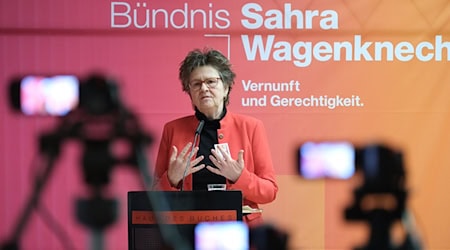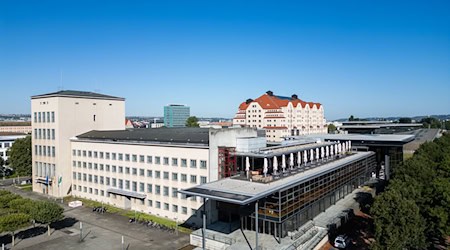Even 35 years after reunification, a clear majority of voters in Saxony, Thuringia and Brandenburg believe that eastern Germany is lagging behind western Germany. In a survey conducted by the YouGov Institute, 60 percent of respondents fully or somewhat agreed with the statement "Living conditions in West Germany are significantly better than in East Germany". In contrast, 30 percent voted "not at all" or "somewhat".
The institute said it surveyed 1,898 eligible voters in Saxony, Thuringia and Brandenburg between August 9 and 16. According to YouGov, the figures are therefore representative of the respondents as a group, not individually in the three federal states.
Prejudices against East Germans
The state parliaments in the three states will soon be re-elected. Saxony and Thuringia vote on September 1, Brandenburg follows three weeks later.
While a majority of respondents (77%) believe that West Germans are prejudiced against East Germans, the opposite view is roughly equal. 45 percent also see prejudices in the East towards the West, 46 percent not at all or rather not at all.
Majority see immigration as a burden
Fifty-one percent of respondents in the three East German states see immigration as a burden, while only 22 percent consider it necessary to secure prosperity. Immigration and asylum policy were named as the most important issue for local people by 35%.
68% of people are very or somewhat dissatisfied with the state of democracy in Germany. 35% want to see cooperation between other parties and the AfD completely ruled out. 26% are in favor of actively seeking cooperation. A third of respondents want cooperation to be considered on a case-by-case basis.
In Saxony, Saxony-Anhalt and Thuringia, the AfD is classified as a confirmed right-wing extremist party by the respective Office for the Protection of the Constitution, while nationwide and in Brandenburg it is classified as a suspected right-wing extremist party. The party is legally defending itself against the classification.
Some top candidates little known
The top politicians in the three federal states have very different ratings in the survey. Saxony's Minister President Michael Kretschmer (CDU) is viewed very or somewhat positively by 41% of voters, while 37% rate him very or somewhat negatively. Thuringia's head of government Bodo Ramelow (Left Party) is viewed very or somewhat positively by 37%, with 38% rating him negatively. Dietmar Woidke (SPD) in Brandenburg has 24% of respondents on the positive side, while 23% rate him very or somewhat negatively.
Some top candidates are still little known. 61% of respondents said "I don't know" for Jan Redmann (CDU, Brandenburg), Mario Voigt (CDU, Thuringia) came in at 47%.
Copyright 2024, dpa (www.dpa.de). All rights reserved










